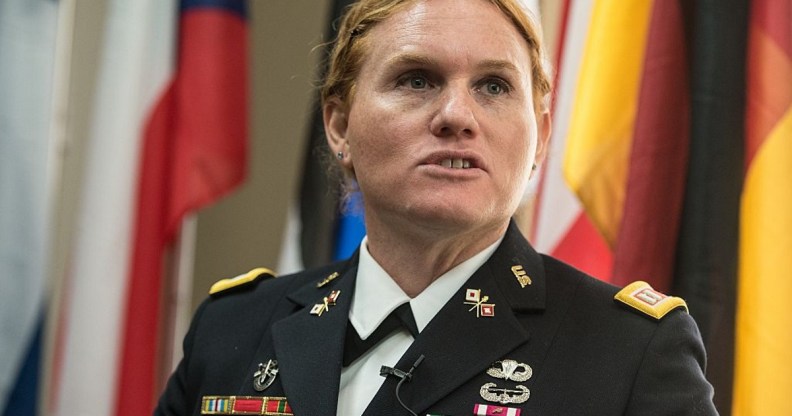Transgender people could serve in the US army as soon as July

Transgender people could enter the US military as early as July 1st.
The Department of Defence is assessing its ability to recruit trans people, according to a memo signed by a top Pentagon official.
A Pentagon spokesperson verified the contents of the memo but declined to give any further comment, according to Reuters.

The memo instructed every branch of the military to examine its “readiness to begin assessing transgender applicants into military service on July 1, 2017.”
Chiefs of each branch were told to submit their reports by May 31st.
The law banning trans people from military service was changed in June last year, under the Obama administration.
Former defence secretary Ash Carter announced the shift, which came after years of lobbying and trans soldiers having to hide their gender identities.
The announcement instantly rescinded the rule which forced trans people to be involuntarily separated, discharged, or denied reenlistment or continuation of service.
And now, the first new, openly trans military recruits could be just five weeks away.
More than 100 trans troops approached their superior officers to say they want to transition in the period after Carter’s announcement.
The news will come as a relief to trans people who worried by the appointment of Army Secretary Mark Green, an anti-gay Republican lawmaker who said trans people are “evil” and should be “crushed”.
Green’s nomination was eventually withdrawn, but the Trump administration has generally acted with hostility towards trans people.

In February, his government officially revoked guidance protecting transgender students in public schools.
And the Trump administration appears set to appoint transphobe Sheriff David Clarke to the Department of Homeland Security.
The sheriff has called trans people “freakish” and referred to the Orlando Massacre as a “distraction”.

Trans whistleblower Chelsea Manning, who was released from prison last week, announced her transition to female in 2013.
She was denied the right to transition behind bars, leading her to make several suicide attempts.

